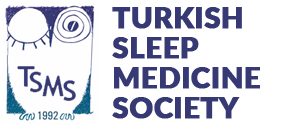- Turkish Sleep Medicine Society - TSMS
- Naci Çakır Mah. 760 Sk. No:25/17
- Çankaya / Ankara
- E-mail Addresses
- iletisim@tutd.org.tr
- Phone
- 0 530 409 8260
Sleep apnea
Obstructive sleep apnea (OSA) is characterized by repetitive episodes of complete (apnea) or partial (hypopnea) upper airway obstruction occurring during sleep. These events often result in reductions in blood oxygen saturation and are usually terminated by brief arousals from sleep. The patient complains of sleepiness, nonrestorative sleep, fatigue, or insomnia symptoms. The patient wakes with breath holding, gasping, or choking.. The bed partner or other observer reports habitual snoring, breathing interruptions, or both during the patient’s sleep.
Multiple factors have been found to increase the risk of blockage and OSA: These are anatomical characteristics, obesity, use of sedatives, including alcohol, family history, cigarette smoking, sleeping on your back, nasal congestion and hormone abnormalities.
Because of how it affects oxygen balance in the body, untreated sleep apnea raises dangers for various types of cardiovascular issues including high blood pressure, heart attack, heart disease, and stroke.
Treatment: Lifestyle changes, such as losing weight, reducing use of sedatives, and sleeping on your side, can resolve some cases of OSA. Another common treatment is nightly use of a continuous positive airway pressure (CPAP) or bi-level positive airway pressure (BiPAP) machine. These devices push air through a mask and into the airway to keep it open during sleep.

